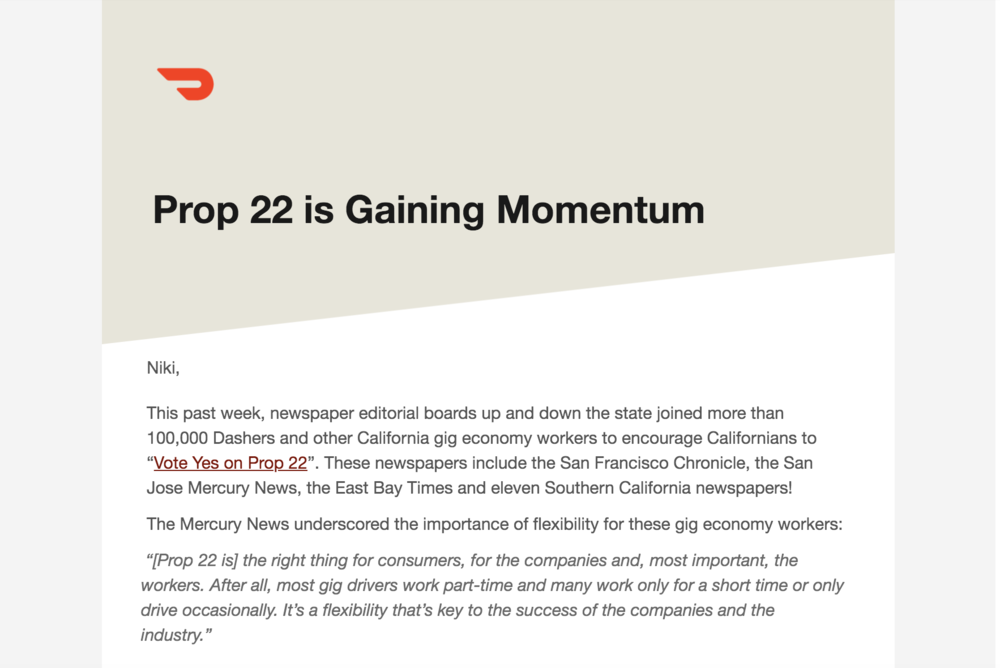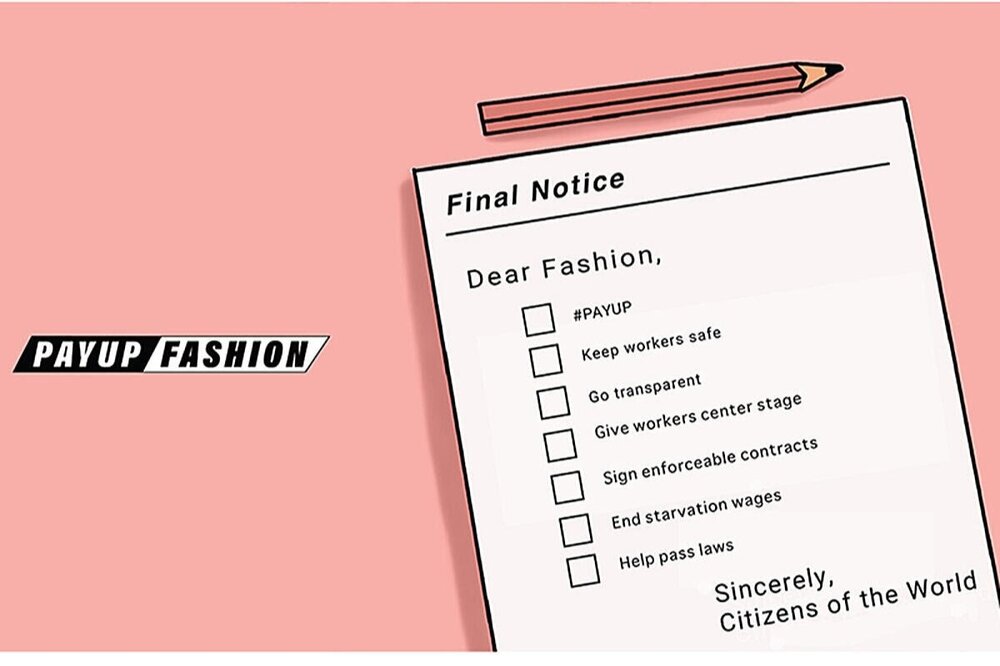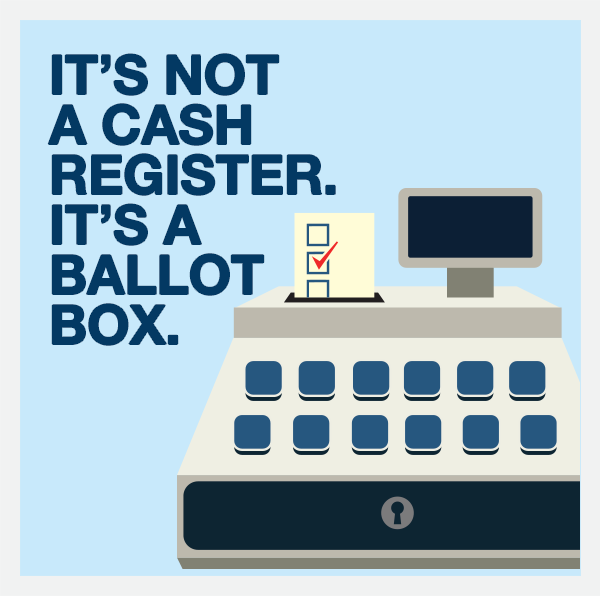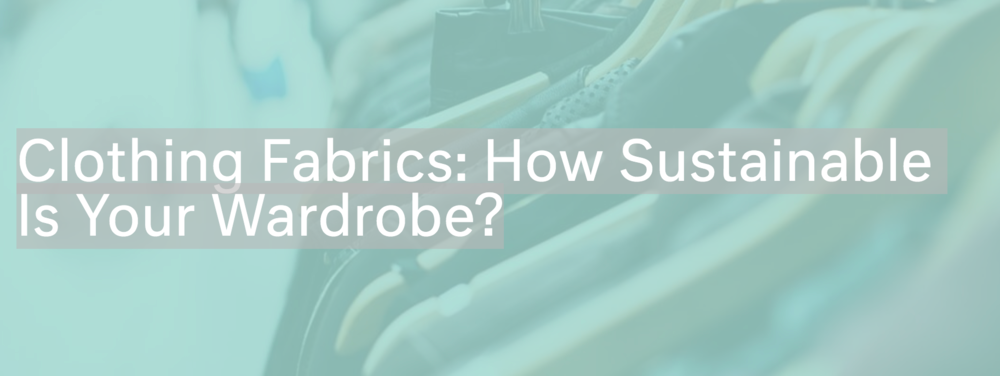The Limits of Voting with Your Dollar

…and other solutions for making your voice heard
I preach a lot about voting with your dollar. For the last seven years, I've been exploring the power of consumer choices and how we spend our money. I'm always fine-tuning how I spend my money as a person, and as a business and making sure those purchases align with my values around a love for the Earth and love for our fellow people, mining, growing, making, selling those products. The pandemic, which shook global industries and economies, has brought sharp focus around how we spend our money, the ethics of billionaires, multinational corporations, and the inequality deeply ingrained in our systems. We've all seen calls to #cancelAmazon, to support local businesses, and to #buyBlack. How we spend our money is undeniably a powerful force, especially in an economic landscape dominated by a handful of multinational corporations and the billionaires behind them. However, voting with your dollar is only one piece of the puzzle in creating lasting change. So let's talk about the role of governments now.
I've been hesitant to talk about governments, for the risk of sounding too political, but now during a new civil rights movement and a global pandemic, I think we safely can throw out the old advice of keeping politics out of business, especially when business won't stay out of politics.

One of the most significant limitations of voting with your dollar is that your vote is proportional to your spending. The problem is simple, the more dollars you have, the more votes you get.
Businesses (especially large firms) have enormous power to cast their votes and influence governments in this way. Take, for instance, Amazon. The gargantuan firm has been accused of holding the city of Seattle hostage, threatening to move jobs out of the city and halting construction on their downtown Seattle tower in response to a proposed tax increase on businesses with over $7 million in payroll expenses. While the city ultimately caved to Amazon's wishes, the company still moved jobs out of state. However, this power can also be wielded to support our institutions and society. Remember back in 2015 when the governor of Indiana signed a bill into law that legitimized discrimination against the LGBTQ+ community? It was primarily due to the business community's response and the threat of moving their spending out of state, ultimately making the state legislature back down and change its stance. It was the business community that reinforced that kind of discrimination is not welcome in our society.
Voting with your dollar and fostering business and industry cooperation undeniably drive progress, but there are too many problems that we can't solve without the power of collective action, aka government.
According to Rebecca Henderson, renowned Harvard professor and author of Reimagining Capitalism in a World on Fire, finding a way to balance the power of the market with the power of purpose-driven businesses committed to the public good is key. This balance requires "the development of new ways of behaving and new ways of believing, just as much as it requires the development of new laws and new regulations," Henderson states.

We have entire industries reliant on widespread exploitation, like fast fashion, which will require more than significant reimagining. The #PayUp campaign has shone a spotlight on garment workers' plight left in dire straits as international brands refuse to pay the factories making their clothes, often for completed orders. It's not an accident that international brands manufacture in countries like Bangladesh, moving their manufacturing from one developing country to another. The power imbalance between these multinational corporations and the governments of developing nations is precisely the point. According to a report by UK non-profit, Traidcraft Exchange, "This supply-side model has not been compatible with the establishment of deep and wide social protection coverage. Instead, [producing] countries have, under pressure from financial institutions, followed a race to the bottom through wage suppression, deregulation and privatisation. Faced with the collapse of orders combined with the effect of the COVID-19 virus, these countries are all ill-equipped to provide support to the increasing numbers of sick people, workers at risk of exposure and families without income." Even in developed nations like the US and UK, exploitation, modern slavery, and sweatshop conditions still exist, despite their labor laws.
According to Traidcraft, "Any real change will require much greater engagement with governments because brands cannot achieve their goals to operate more responsibly without systemic shifts. However, well-meaning, no individual brand can ensure workers in its supply chain are getting a fair wage if all its competitors continue to undercut it. Similarly, reducing emissions across manufacturers will require a wholesale shift to cleaner energy that will likely need government support to facilitate." Ultimately reimagining this system can only be addressed by limiting the power of businesses, especially multinational corporations. Our wholehearted cultural embrace of maximizing growth, profits, and shareholder value at almost any cost, and consequently, the trend of devaluing the government that followed, leaves many countries' institutions poorly equipped to hold the power of business in check. Adding the pandemic to the growing global burden has only heightened the risks of continuing this kind of business as usual and prioritizing growth over creating value.
A growing number of purpose-driven businesses and financial institutions passionately committed to making a difference in the world lead the way. "This idea that we have to be responsible for the air and the water and the land should be integrated into every business's thinking," said Eileen Fisher. "I really think the whole capitalism model has to change. It has to include the cost to the workers and the planet." Existing frameworks like the OECD due diligence guidelines and the UN Sustainable Development Goals, laying out its principles of corporate sustainability and a blueprint of global progress to look to for the next decade. However, many still discover that they need government involvement if they want to reach their goals and meet their commitments. Creating shared value and self-regulation isn't enough. "They are discovering that without the full cooperation of a functional, transparent government that cares about the welfare of its country and its people, many environmental problems cannot be solved, and one can make only minimal headway against reducing inequality." Henderson states in her book. We need governments to step up, either creating incentives for businesses to get on board with making change, or regulations that force everyone to do the right thing.

It's clear that as business owners, our political engagement is essential in helping repair our institutions, but what can we do as individuals?
Every major social and political movement has been fueled by individuals coming together to do the work and support each other in demanding and creating change.
- First, continue voting with your dollar and supporting businesses that truly align with your values. Do the research before you buy, apps like Good on You, Goods Unite Us, Cruelty-Free, and good old Google are a great place to start. If a brand you love falls short, take it a step further and let businesses know your concerns for the environment and/or human rights in their organization and supply chain. If you're boycotting a brand, it's important to tell them why. This will let them know what you (and most likely others) want to see them change. Fashion Revolution even has easy tools for writing and contacting brands.
-Similarly, you can encourage the company or organization you work for to adopt new changes and take on new initiatives you care deeply for. This encouragement could mean becoming a One Tree Planted partner and planting a tree for every order shipped to help reforest the Earth. Or this could be switching to plastic-free packaging alternatives, setting up a donation matching program, or more. Sustainable tea exists because of an employee suggestion and making a case as to why that also meant good business—Aim high.
-Volunteering your time with organizations dedicated to creating change and serving our communities is another way to help move towards these shared goals. Think about the skills you have and how you can best put them to use in your community. Consistently committing to an organization or an issue ensures we can have a greater impact in our respective communities. We all have a part to play; where do you feel you can have an impact?
-And vote! A functioning democracy depends on the voices and the participation of its citizens. Researching your local officials is a good place to start. These are the officials who govern your local resources, housing rights, city-wide emissions and more, so it's important to know where they stand on key issues in your area. Following your local officials on social media can be a good way to keep current on where they stand in relation to the issues that matter in your community. Subscribing to local news can help you stay informed on the issues and support an important local industry in the process.
"Change is slow until it is fast. The avalanche looks like nothing but a few pebbles until the whole hillside goes."





